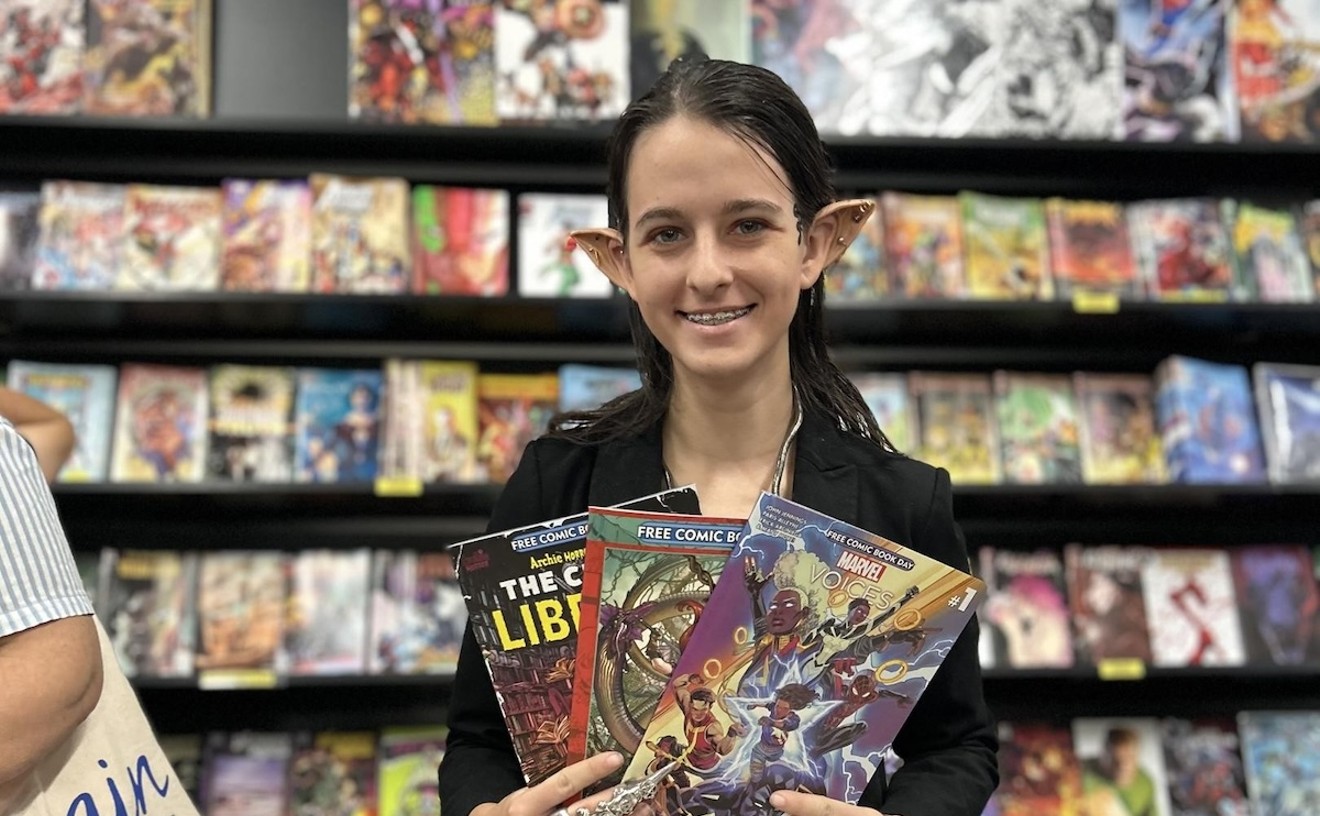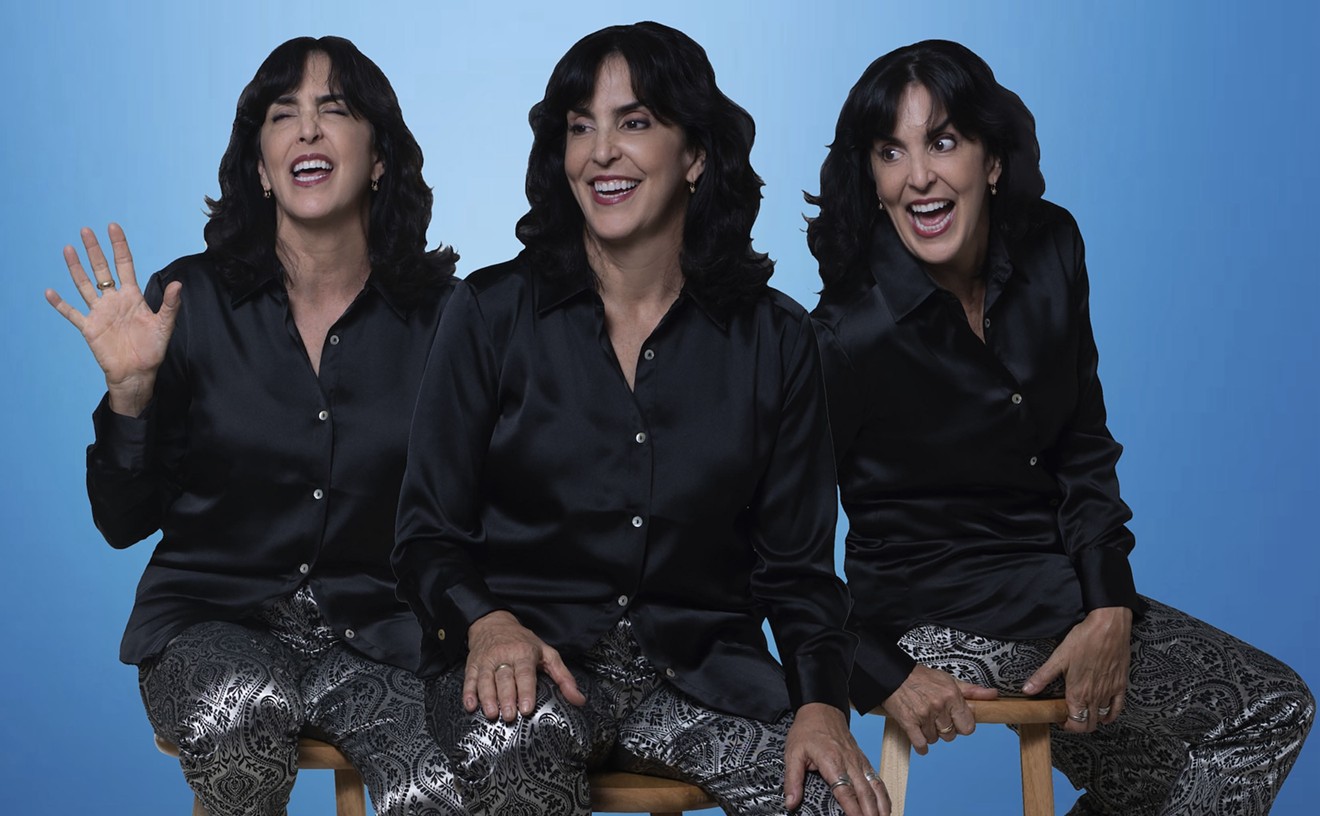In Cuban Ballet, author Octavio Roca utilizes words and lush photographs to tell the story of Alicia Alonso, Cuba's most prominent prima ballerina and choreographer (and also one of the most powerful women aligned with the island's government). The author, son of a former Havana ballerina, also explores the lives and influence of young Cuban dancers who have fled the country. "I set out to tell a tale of revolution in a country as well as in ballet," he says. "I wanted it to read like a novel that happens to be true."
Roca has worked as a dance critic for several decades, including a stint at the New Times. He was the subject of controversy at the Miami Herald, where he was fired for plagiarism after using a portion of an article he had written several years prior for another publication. (Roca had this to say about the incident: "I was fortunate to work with some of the best minds and best people in American journalism [for over thirty years.] Then I spent a few months at the Miami Herald, where I came in touch with some of the worst. I'm over it.") Now a professor at Miami Dade College, he'll speak on Cuban culture at the Miami Book Fair.
New Times: What inspired your interest in Cuban ballet?
Octavio Roca: My first ballet was Giselle, with Alicia Alonso and Igor Yousekevitch,
when I was five years old. I guess when you start with the best it has a
way of touching you for life. Later, I met Alicia again as an adult
backstage at the first Kennedy Center Honors in Washington, when I was
in graduate school at Georgetown. I first interviewed her for The
Washington Post in 1978 and that was the beginning of my career as a
critic.
What makes Cuban ballet distinct from all other ballet?
Mikhail Baryshnikov writes in his foreword to my Cuban Ballet that you
can't help noticing a Cuban dancer when he walks into the studio. He's
right. And it is not just the technical details, though these are
telling: the strong backs, the New World speed fused with an Old World
theatricality, the fact that they dance not just with their feet but
with their whole being. Dance matters to Cubans, and it matters deeply.
Cuban dancers are not alone in this, but there are very few truly
distinctive schools of ballet in the world today, where so much is
homogenized: British dancers still look British, the Russians Russian,
and the French always have been their own rule. Now here are the Cubans,
the youngest of the international schools, often so far from their
roots yet so unmistakably Cuban through it all. Whether in the island or
in exile, their dancing is a thrilling, touching spectacle.
But what is the impact of so many Cuban ballet dancers that have defected?
Dance may be a universal language, but in the 21st Century that language
has a strong Cuban accent. There are Cubans in the front ranks -- and at
least as important, also as teachers -- in the American Ballet Theatre, San
Francisco Ballet, New York City Ballet, Houston Ballet, Boston Ballet,
and Miami City Ballet. This growing diaspora of Cuban defectors today is
giving the tropical island a cultural importance that is miraculously
disproportionate to its size.
Let's face it: The entire Cuban
population of 11 million could fit comfortably in greater New York,
Moscow, or London. These Cuban dancers, often far from their homeland
and more distinctly Cuban for it, say with every step that, "No, you
will not take Cuba away from me."
So exile has revitalized Cuban ballet and incorporated it into American dance culture?
That is what I find the most touching. The experience is not unique to
Cubans but to all Hispanics and all immigrants, but the Cuban experience
is mine and I can tell you that the more we try to remain Cuban the
more we are helping to create today's American culture--which is and
always has been a culture of immigrants. American ballet was created by
immigrants like George Balanchine and Antony Tudor. And it is being
enriched and redefined by these Cuban dancers right now.
Octavio Roca will be speaking on Cuban Ballet along with authors Roberto
Gonzalez Echevarria on Cuban Fiestas, Gustavo Perez Firmat on The
Havana Habit, and Mark Weiss on The Whole Island: Six Decades of Cuban
Poetry at the Miami Book Fair at Miami Dade College (300 NE Second Ave.,
Miami) in building 7, room 7106/7107 on Sunday, November 21. The event
is free and begins at 3:30 p.m. Call 305-237-3258 or visit
miamibookfair.com.
See our full listing of Miami International Book Fair events here.










